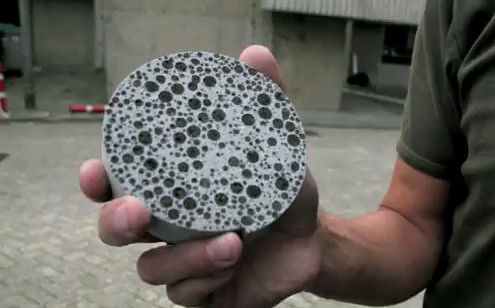Self-healing bio-concrete uses bacteria to repair itself

A new type of concrete has been developed that has the ability to repair itself in order to prevent cracks and pot holes from forming.
Microbiologists at Delft University of Technology (TU Delft) in the Netherlands embedded calcite-precipitating bacteria into a concrete mixture to give it self-healing properties under the right conditions.
The self-repairing bio concrete uses a "healing agent" that becomes active when water gets into cracks on its surface. A reaction between the water and the bacillus bacteria causes limestone to form and close up the cracks.
"Although concrete is the world's most used building material, it has a serious flaw: it can easily crack when under tension," a TU Delft report detailing the research stated.
"If these cracks become too large, they will lead to corrosion of the steel reinforcement, which not only results in an unattractive appearance, but also jeopardizes the structure's mechanical qualities.

"This is why engineers often use a larger than necessary amount of steel reinforcement within a concrete structure in order to prevent the cracks from becoming too large."
In theory, the use of this type of bacteria within commercial concrete mixtures could create substantial savings and lead to more durable concrete structures.
According to lead researcher Henk Jonkers, bio-concrete would be ideal for constructing containers for hazardous waste due to the difficult nature of carrying out human repairs.
The current costs involved in creating the concrete mean that other potential applications, such as constructing residential buildings, are not yet commercially viable.
"Currently, our research focusses on creating the right conditions for the bacteria to produce as much calcite as possible and on optimizing the distribution of food for the bacteria," the TU Delft report states.
"In addition, we are also looking at the self-healing ability of bacterial concrete and how this is affected by the various deterioration mechanisms involved."
© Copyright IBTimes 2025. All rights reserved.






















